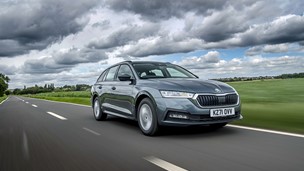Virtually all alternative-fuel vehicles in the new car market, including hybrids and fully-electric cars, feature braking technology known as regenerative braking.
There’s some clever science behind how regenerative brakes work, but we’re not about to dive into all of the technical jargon you could use to explain it.
Here’s our straightforward guide to what regenerative brakes are, how they work and how they benefit cars that feature them.
What do regenerative brakes do?
When a car is travelling on a road and it has its brakes applied, they create kinetic energy which ordinarily dissipates heat. Kinetic energy is of course defined in simple terms as energy something possesses because it is in motion.
What the components of a regenerative braking system do is capture the kinetic energy created during braking so that it doesn’t simply disappear. Instead, the captured energy is used to recharge the vehicle’s onboard electric motor, which will inevitably be present since the technology is used for hybrids and electric vehicles.
The likes of the Toyota Prius, Renault ZOE, BMW i3 and Tesla Model S are all hybrid or electric cars from mainstream brands - and they all utilise regenerative brakes.
Benefits of regenerative brakes
There are several different types of regenerative braking systems that have been developed in recent years for cars, although ones which send the kinetic energy directly to charge batteries are the most common type on today's mainstream cars.
Regardless of what type of regenerative brakes a car has, the main benefit is always the same anyway. They can significantly boost the efficiency of the car they are installed on.
The energy stored from using the brakes means the motor has more charge to use and any conventional engine onboard does not need to work as hard during situations that require, say, hard acceleration. Long term then, the regenerative brakes help to make fuel stops and/or plugging in the car to recharge the electric motor, a less frequent and less costly thing.
Compare new car prices today with Carkeys.
Why not try our new car finder?




